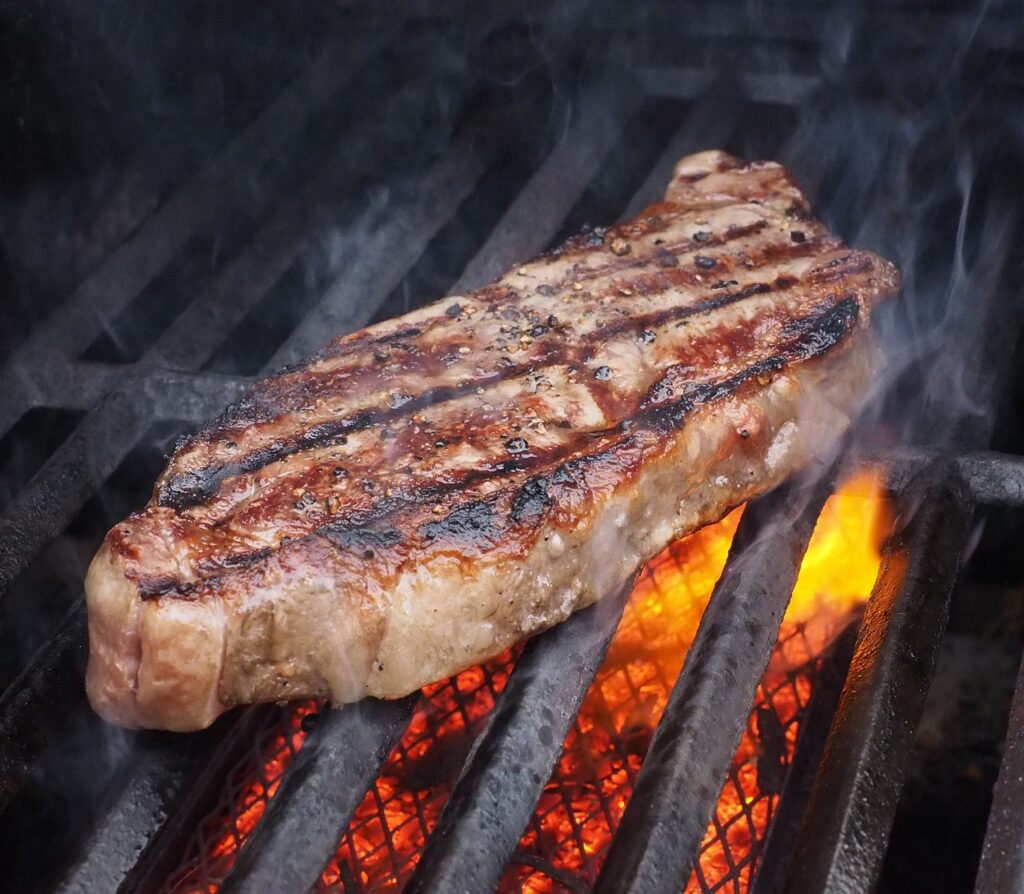
The answer to the question “how much protein you need to lose fat and build muscle ?” is not black and white for every individual. The amount of protein you need in your diet is going to be dependent on several factors. Its going to be dependent on whether or not you perform weight training, how much lean body mass you have, and how much fat mass you have. In this article, we will discuss how much protein is scientifically needed for fat loss, muscle growth and/or muscle retention. We will also discuss some of the myths surrounding protein and why you don’t need as much protein as you think.
Why Proper Protein Intake is important for Fat Loss and Building Muscle.
There are a few reasons why proper protein intake is important on a fitness plan. First, sufficient protein intake ensures that your weight loss plan is optimized purely for fat loss. We know that fat loss is achieved through a caloric deficit. In other words, you must be consuming less food energy than your body burns on a daily basis. The problem is if you are in a caloric deficit and not eating enough protein, you can be losing as much muscle as fat on your diet plan. That is not something you want. Secondly, protein is the main macro-nutrient responsible for building and repairing muscle tissue after an intense strength training workout. When you eat a higher protein diet, you get better training performance and training recovery. You also reduce your risk of injury from weightlifting. Lastly, protein promotes fullness on a lower calorie diet. This is important because if you are in a caloric deficit and not getting sufficient protein, you may experience more hunger issues on a diet.
Some of the Myths Related to Protein
There are a few myths out there in relation to protein consumption. For years it has been promoted by certain people in the supplement industry that you need either 1.25 grams of protein per pound of body weight or 1.5 grams of protein per pound of body weight to maintain muscle. Some people think you need 2 grams of protein per pound of body weight. Now, the most popular belief is that you need 1 gram of protein per pound of body weight to maintain muscle. Based on the scientific literature, none of these figures are true for natural resistance training individuals. In the next part of this article, we will discuss your true protein needs as a natural. Another big myth is that your body can only absorb 30 grams of protein per meal you eat. It’s not true, your body will absorb as much protein as you take in. For example, if you consume a large meal that contains 90 grams of protein your body will absorb it. It would just take longer to digest.
How Much Protein You need If You Don’t Weight Train
If you are someone who does not lift weights, your protein needs are not going to be that high. According to the World Health Organization, a non-resistance training individual will only require about 0.36 grams of protein per pound of body weight. For example, if you are a 130-pound female who doesn’t perform resistance training you would only need about 47 grams a protein per day to maintain your satiety and hormonal health. This also assumes that you rely on a caloric deficit and moderate daily physical activity as a means of weight loss. This can be activity such as walking or dancing.
How Much Protein You Need if you Are Already Lean
If you are a fairly lean resistance training individual, you only need about 0.82 grams of protein per pound of body weight according to the research. This assumes that you are a natural strength athlete, who doesn’t take steroids or performance enhancement drugs. Whether you are on a cutting phase or lean bulking phase, this protein figure would still apply to you. For instance, if you are a 180-pound male entering a cutting phase you would only need about 148 grams of protein per day to maintain muscle. It is important to have protein intake dialed in while being in caloric deficit, because the leaner you are the more you are at risk for muscle loss.
How Much Protein You Need if You Are Overweight or Obese
If you carry more excess body fat, your protein needs are not going to be that high. Excessive body fat promotes the hormone Leptin, which is your satiety hormone. Therefore, you can lose fat quickly just by virtue of reducing your caloric intake to a large degree. Your metabolism would not be negatively impacted, and your hormones would not be negatively affected. Also, you would not be at risk for muscle loss even if you are in a large caloric deficit. However, its still important to get sufficient protein on fat loss plan for satiety purposes. Based on the research, you wouldn’t get any extra benefit eating more than 0.7 grams of protein per pound of body-weight. For example, if you are a 220-pound male you would only need about 154 grams a protein per day on a fat loss diet.
The Problems with Consuming too Much Protein
There are significant problems with too much protein consumption. The first obvious problem is health issues. Research has shown that too much protein over a long period can be cancerous. The second problem is that you may consume an excessive amount of protein at the expense of fats and carbohydrates. All three macro-nutrients are essential for satiety and hormonal health, especially if your goal is long-term weight loss. Lastly, too much protein in your diet can be very financially costly. Protein is your most expensive macro and it makes sense because its your major macro-nutrient. It does the best job at promoting fullness on a diet plan. However, you don’t want to go broke trying to get an unneeded amount of protein in your diet.
Conclusion
Sufficient protein intake is essential for your fitness goals. However, you don’t want to be over consuming protein at the expense of your other 2 macro-nutrients. You want to make sure all three macros are counted for in your fitness plan, especially if you want to optimize for muscle retention and satiety.

One Response